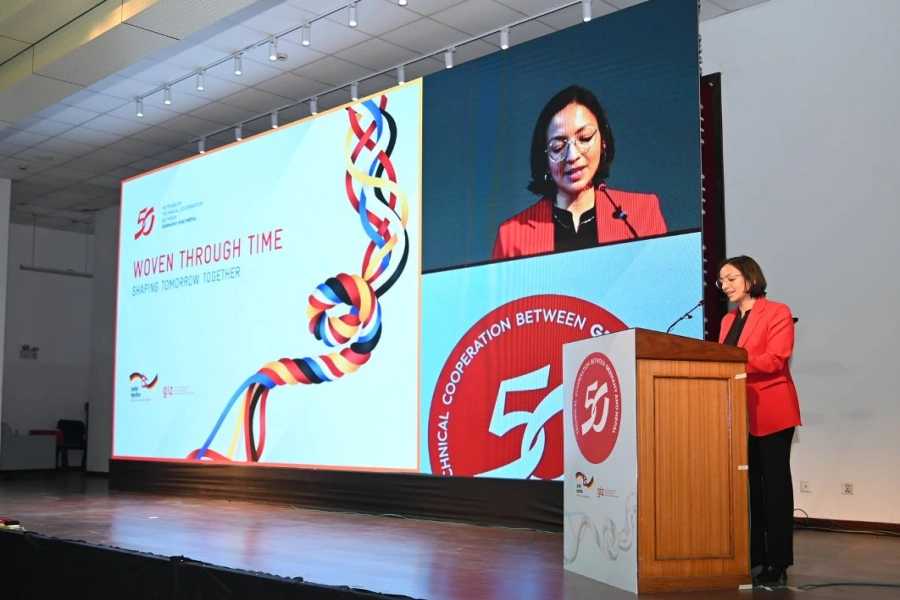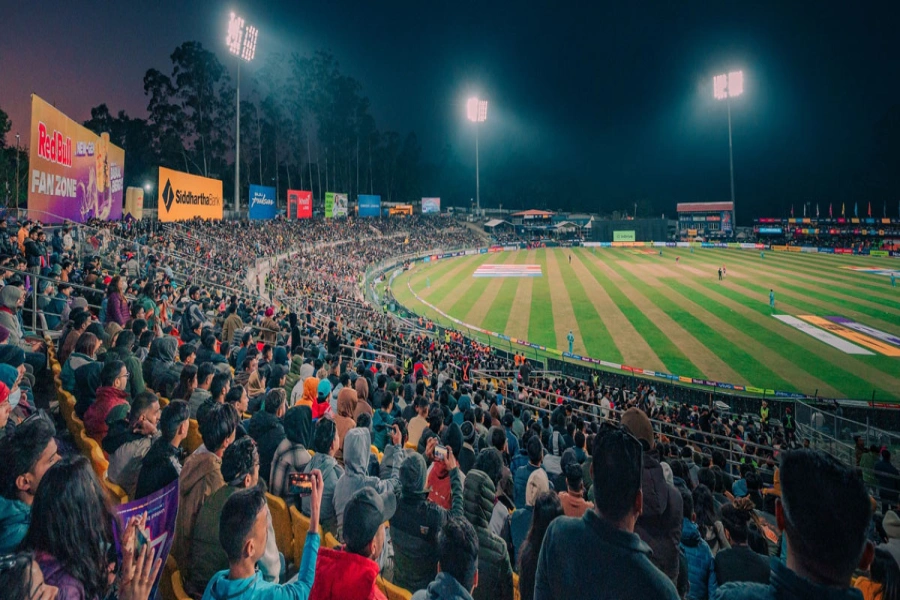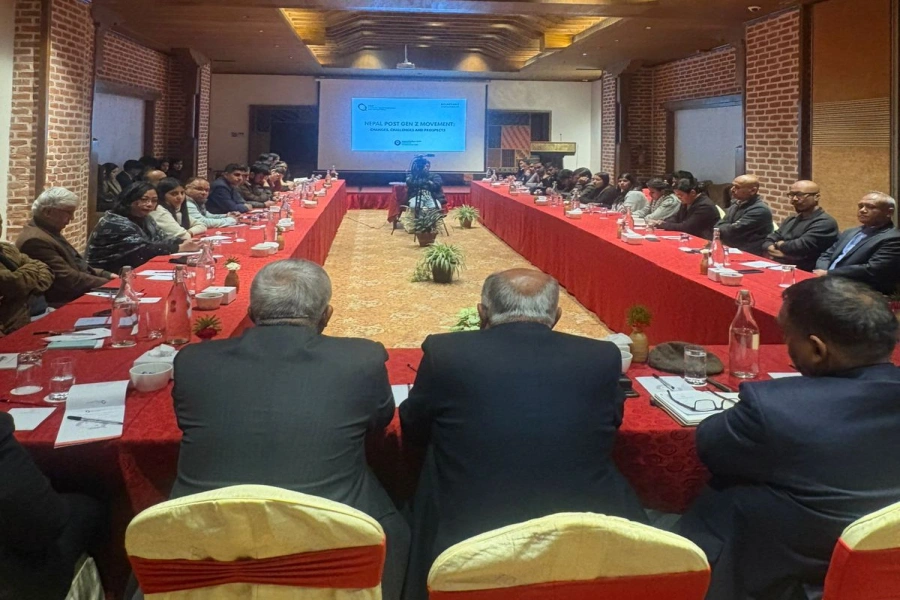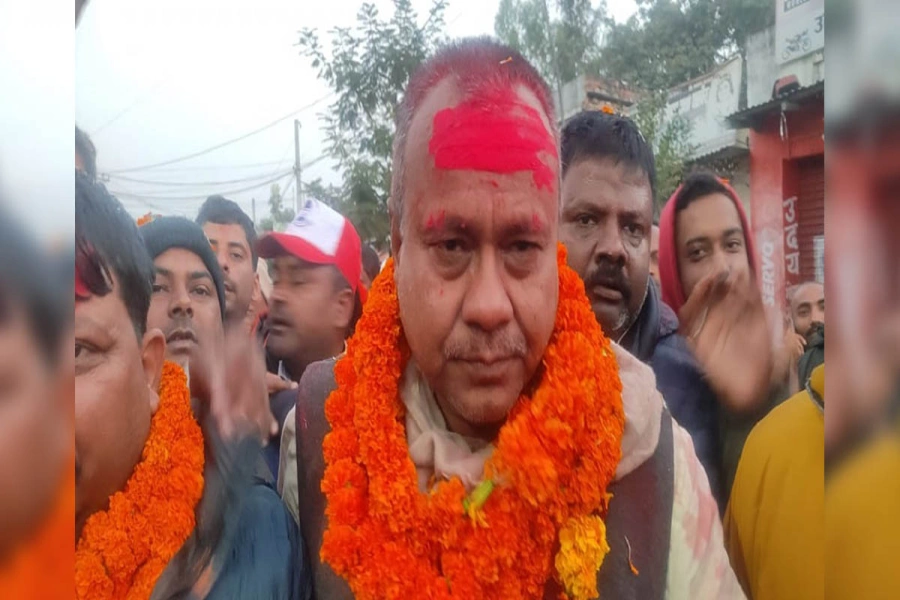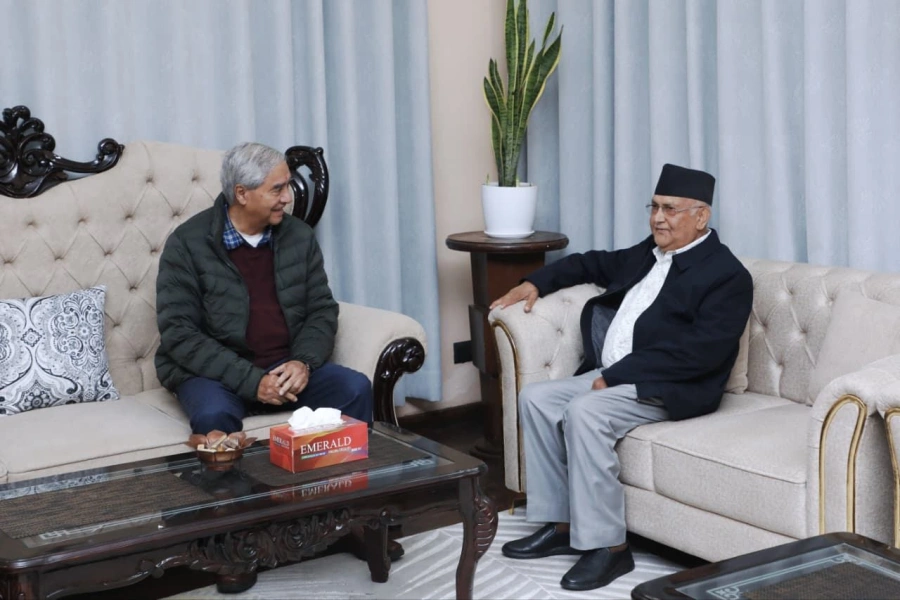KATHMANDU, Oct 11: The School Education Bill 2080 BS has sparked controversy because of the provisions regarding the Secondary Education Examination (SEE), which could potentially lead to a decline in overall school education quality and weaken the university admission base.
Government school teachers have protested against the cancellation of SEE as provisioned for in the Bill. In order to maintain the educational quality of public schools and to enhance the learning level of students, the teachers of government-owned public schools have raised the demand that SEE examinations should be conducted at the state level.
Currently, in the School Education Bill 2080 BS, which has been registered in parliament by the government, it is stipulated that school level examinations should be conducted only at two levels, at the primary and secondary levels.
A provision has been made for the final examination of the basic level to be conducted by the local level for class 8 and the final examination for class 12 of the school level to be conducted by the National Examination Board (NEB).
Pvt schools charging admission fees for Grade 11 against rules

SEE for grade 10 has been canceled and handed over to the school itself. However, the teachers who work diligently with the students in the school have argued that the cancellation of SEE of Class 10 will degrade the quality of the overall school education and argued that the examination of SEE should be under the control of the provincial government.
According to Dhan Bahadur Kandwang, co-principal of Tri-Padma Vidyashram Secondary School in Lalitpur Metropolitan City, since the current academic session, the government has reduced the total number of 800 marks in class 10 to 700 and has also reduced the number of subjects.
In class 10, a total of eight subjects, six compulsory and two optional, had to be studied till last year. At present health, population and environment are removed from the five compulsory subjects and Nepali, English, science, mathematics and social studies are made into five compulsory subjects and two optional subjects. In class 12, two compulsory subjects and four optional subjects should be studied in total.
"Subjects taught in class 10 and class 12 are different," said Associate Professor Kandangwa, "On the one hand, students are losing the habit of reading and learning due to the letter-grading system exam, and now, with the cancellation of SEE, students will not prefer to study." This reduces the overall quality of student education. By the time students reach grade 12, they may lose the habit of studying. This weakens the university's admission base. After grade 12, students reach Tribhuvan International Airport more than Tribhuvan University.
While Schedule 8 of the Constitution grants the right to basic and secondary education at the school level, Schedule 9 includes education, sports, and newspapers in the Common Rights Schedule.
Even though it is evident that the right to education is common to all three levels, there is a discussion on the amendment proposal in parliament that there should be at least three levels of examination at the school level.
Prof Gyan Bhakta Maharjan from Adarsha Saula College in Lalitpur suggested that the secondary level, currently divided into Grade 9-10 and Grade 11-12, should introduce two board-level exams between Grade 9 and Grade 12 to increase students' awareness of studying and to support teachers in their teaching efforts. Prof Maharjan believes that SEE should be conducted at the provincial level to enhance student learning outcomes.
Min Bishwakarma, head of Nepali Congress's publicity department, mentioned that the party has committed to enhancing school education through amendments. He stated, "We have had extensive discussions about improving children's learning levels in school education, with cooperation between the coalition parties and an agreement with teachers. The examination question is also interconnected."
Dr Mahashram Sharma, the Chairman of the NEB, emphasized the necessity of the SEE Grade 10 examination to maintain school-level educational quality and improve student learning outcomes.




